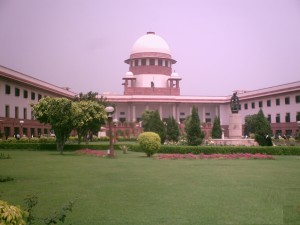India’s Collegium System: A Time for Reform?
Last Friday, the Supreme Court of India invited stakeholders from academia, the general public, and the field of law to make recommendations for the reform of the collegium legal system. The system refers to the process by which a five-member collegium, composed of the Chief Justice of India (CJI) and four senior Supreme Court justices, appoints judges of the state high courts for transfer or elevation, often to the Supreme Court itself.

Calls for collegium reform have originated from members of a Constitutional Bench, comprised of five Supreme Court justices, which on Oct. 16 struck down a constitutional amendment to replace the collegium system with a National Judicial Appointment Commission (NJAC). The amendment, which had been unanimously approved by Parliament, would have replaced the existing collegium with a body including the Union Law Minister and two members jointly selected by the CJI, the prime minister, and the leader of the opposition.
India’s collegium system, otherwise known as a process of “judges-selecting-judges,” emerged out of a series of Supreme Court rulings in the 1980s and 1990s. Three specific cases saw the power of judicial appointment shift from the executive branch, which in 1981 was granted primary responsibility for appointment, to the CJI and judicial branch as a whole. The collegium system has not been without controversy. In fact, Supreme Court Justice Jasti Chelameswar, the only judge on the Constitutional Bench to approve the adoption of the NJAC, has criticized the collegium process for a severe lack of transparency. Moreover, recent scandals have called into question the validity of the system. The collegium’s endorsement of high-ranking state-level justices P.D. Dinakaran and K.L. Majumdar as candidates for elevation, both of whom were later formally accused of corruption and dishonesty, undermined the body’s legitimacy.
In spite of the flaws of the collegium process, some within the judicial branch see it as a vehicle of judicial independence and supremacy. The Supreme Court itself has repudiated the system’s replacement on the grounds that it continues to be functional. Representatives of the executive branch appear to have neither accepted the Supreme Court’s rejection of the NJAC nor conceded the primacy of the Court in judicial matters. Attorney General Mukul Rohatgi has stated that the participation of members of the central government in the collegium reform process should be construed as an acknowledgment of the need for greater transparency rather than an endorsement of the collegium system itself. He has also asserted that the Supreme Court cannot obstruct the right of Parliament to legally determine the judicial appointment system, implying that future assertions of judicial primacy will not go unchallenged.
